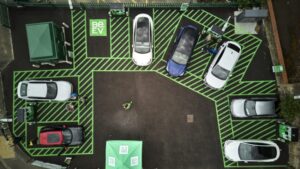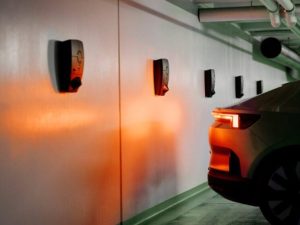Electric vehicle drivers across the UK are leaving £168 million on the table each year by not switching to smart off-peak energy tariffs, according to new research from charger manufacturer Easee.
The company found that roughly 28% of the country’s 1.615 million EVs are still being charged during peak hours – when electricity costs hit their highest points between 8am-11am and 4pm-10pm.
These drivers are missing substantial savings available through off-peak charging tariffs. The overnight rates can slash energy prices by up to three-quarters compared to standard daytime costs.
Easee’s calculations show significant potential savings for different usage patterns.
A driver charging an average 28kWh per week on an off-peak tariff could save £265 annually. Higher-mileage drivers using 40kWh weekly could pocket £372 in savings each year.
The issue isn’t unique to the UK. In Germany, 30% of the country’s 3.35 million EV drivers typically charge during expensive peak periods. Luxembourg shows even lower adoption – just 11% of drivers regularly use off-peak charging.
Smart Charging Benefits Beyond Cost Savings
Sam Levy, UK sales director at Easee, emphasized the broader impact of smart charging habits.
“Switching to a smart tariff is one of the simplest and most effective ways for EV drivers to save money and reduce their environmental impact. By charging at off-peak times, drivers can cut their annual energy bills by hundreds of pounds while helping to balance demand on the grid.”
He highlighted the multiple benefits of off-peak charging strategies.
“Smart charging is more than a cost saving, it’s a win-win-win. Consumers win by cutting bills. The grid wins through better-distributed load, helping to avoid or defer expensive infrastructure upgrades. Society and the climate win because more charging is aligned with periods of higher renewable energy generation, reducing reliance on fossil power and easing pressure on the grid, costs which are ultimately borne by taxpayers.”
Available EV Tariff Options
Nearly a dozen UK energy providers now offer dedicated EV tariffs, with most using time-of-use pricing structures.
These tariffs dramatically reduce costs from the standard variable rate of 25.73p/kWh to as low as 6.7p/kWh – typically between midnight and 5am.
Some providers like Octopus Intelligent Go use dynamic pricing systems that automatically charge vehicles when demand drops throughout the day, not just during set overnight hours.
The research suggests many EV owners simply aren’t aware of these savings opportunities or haven’t made the switch from their standard energy tariffs.





